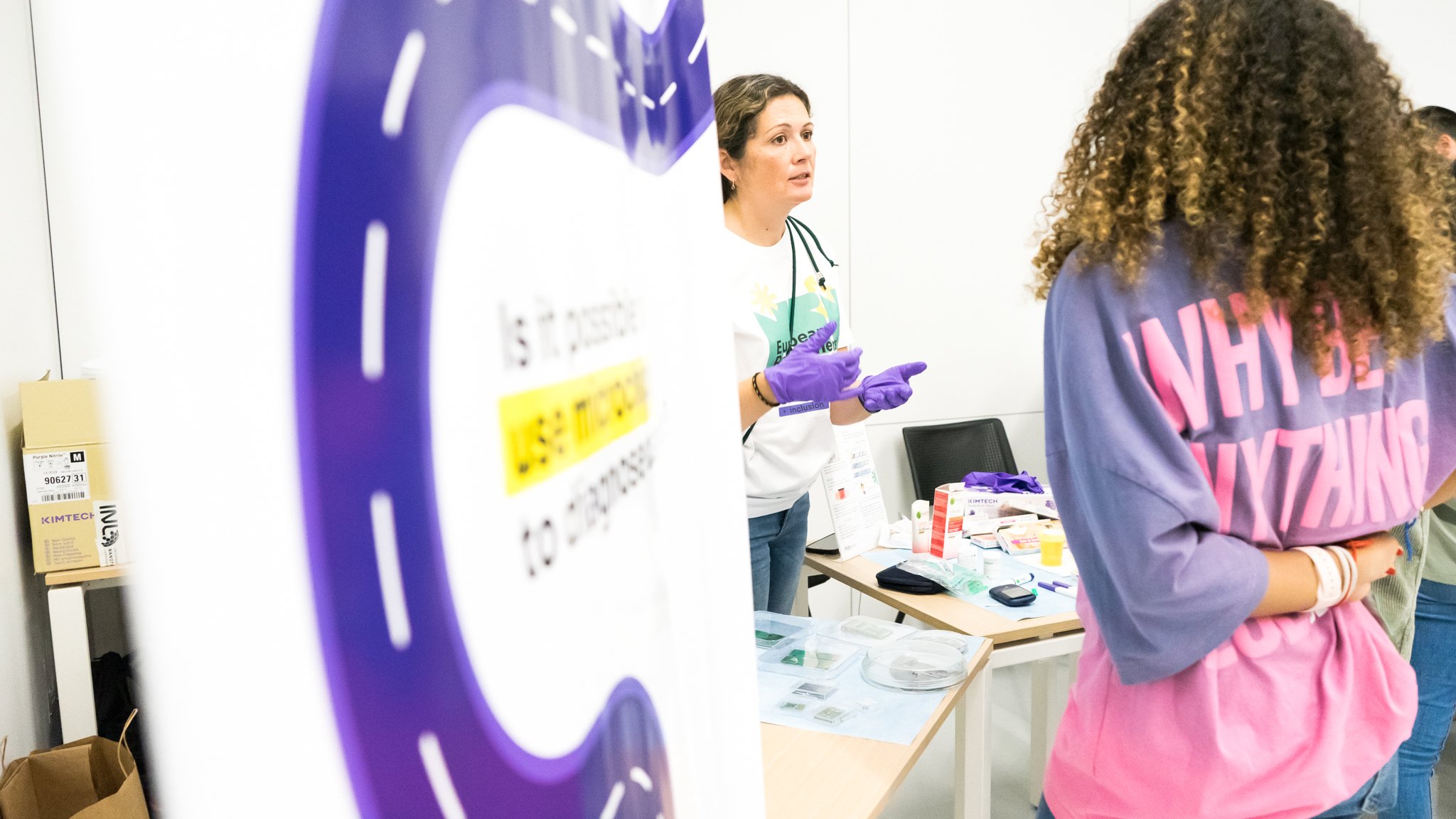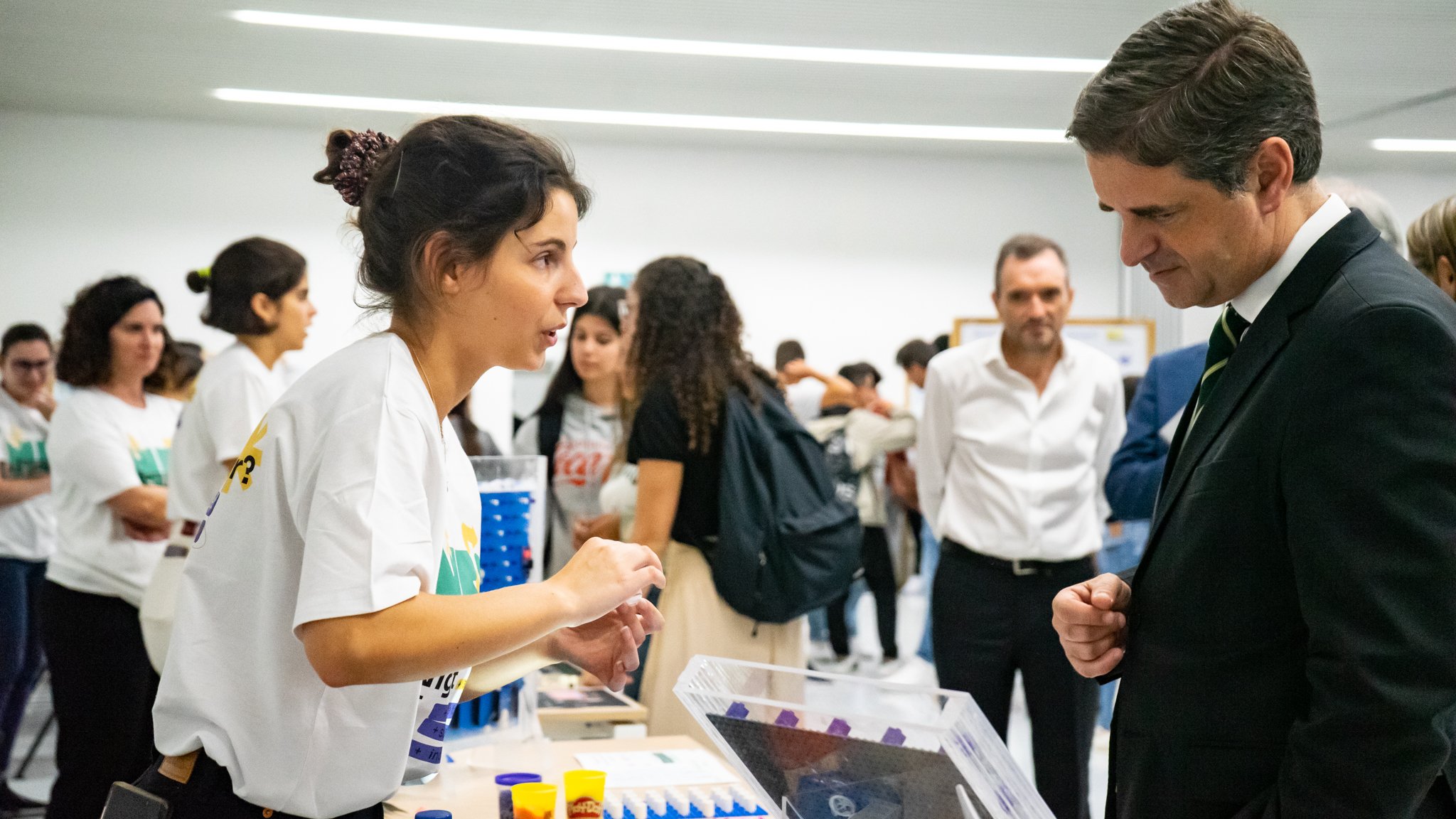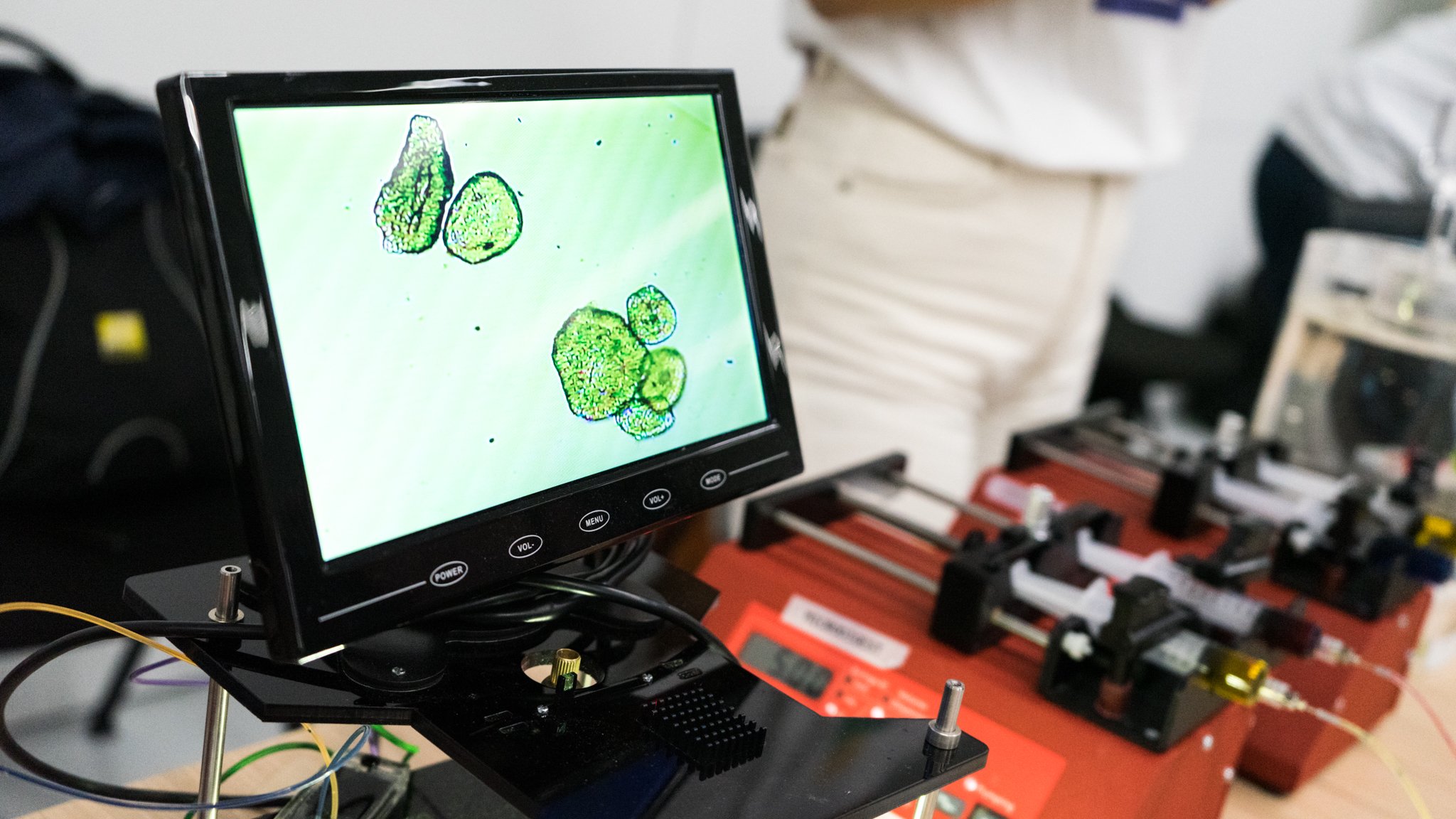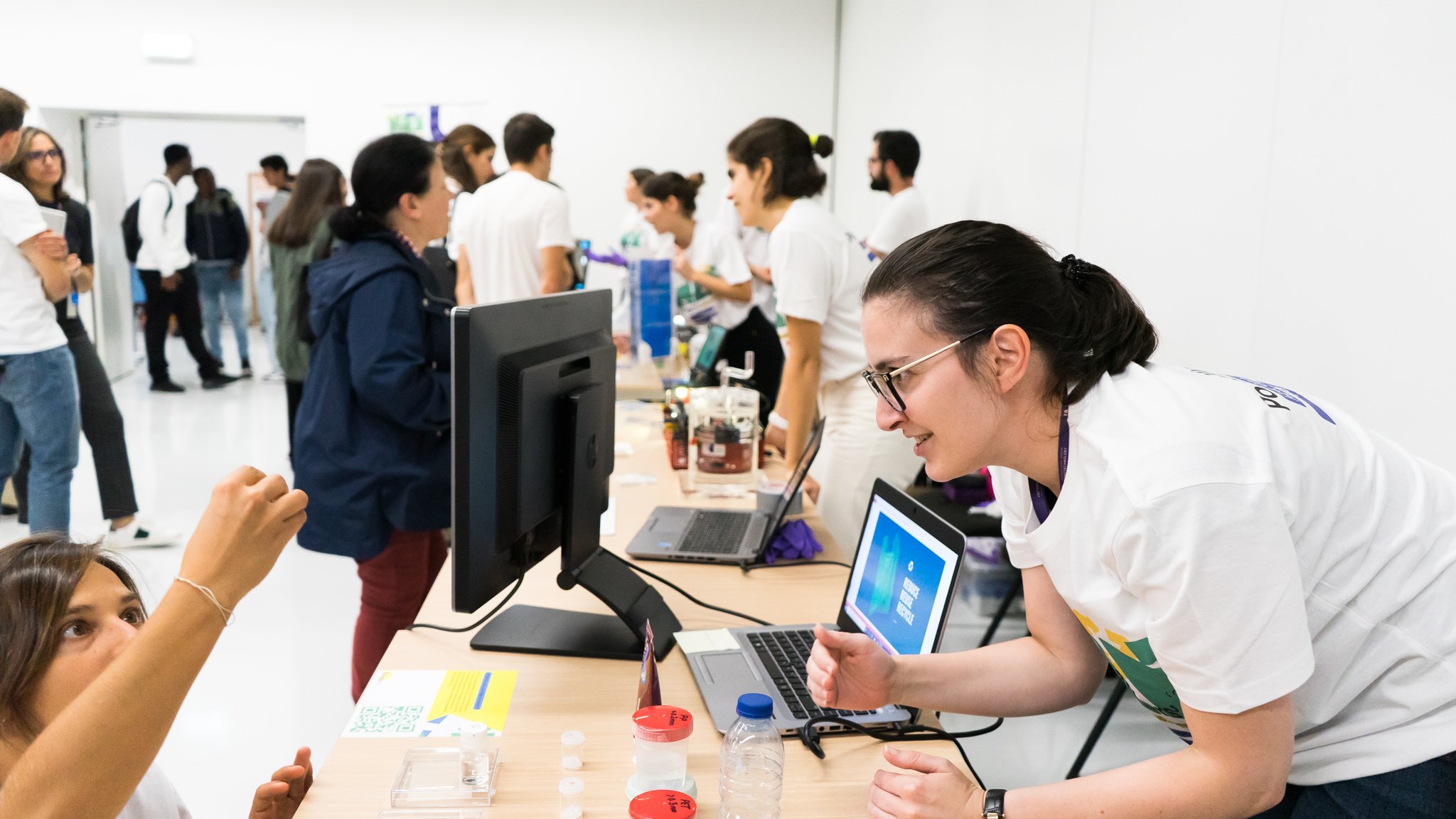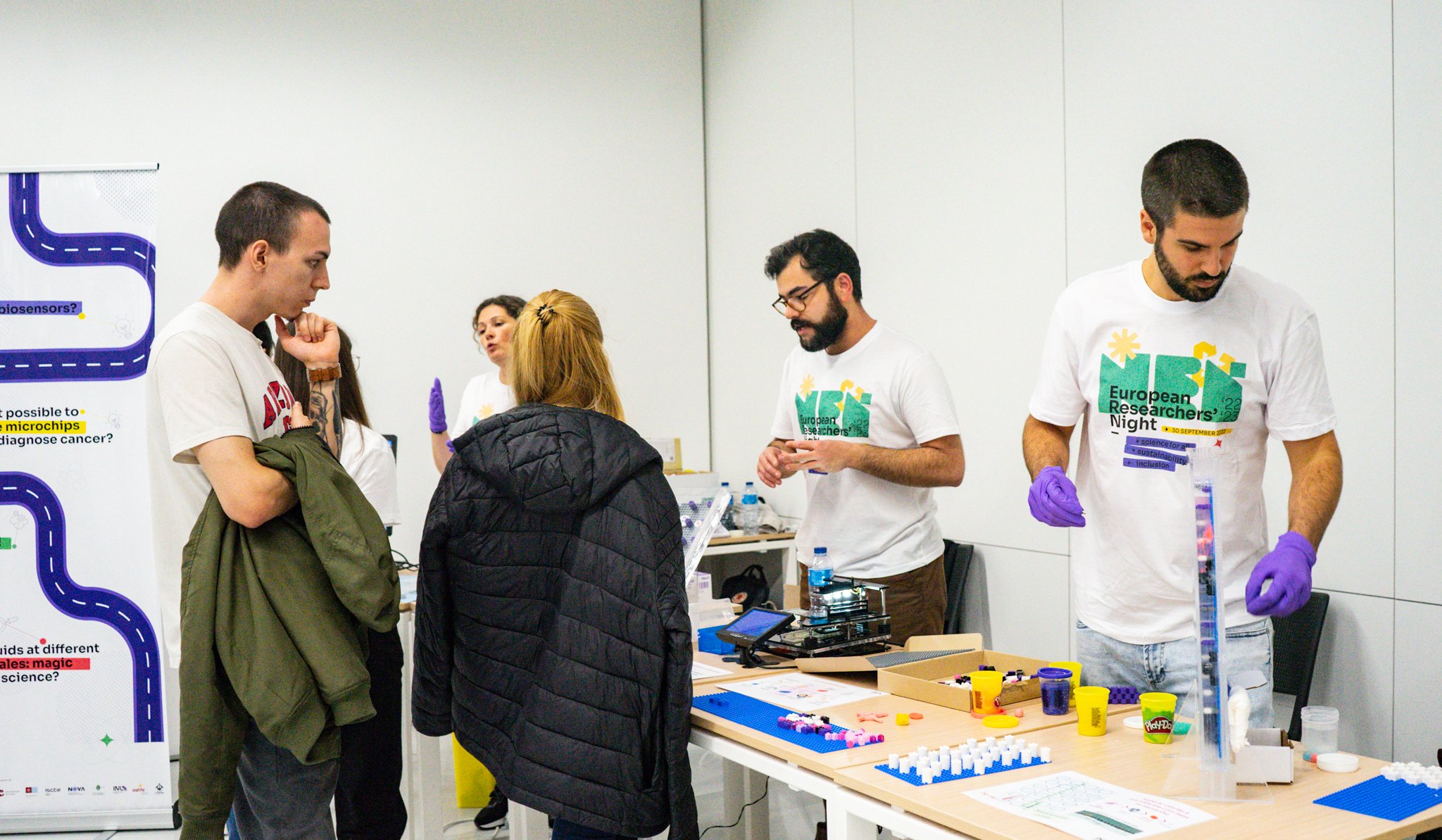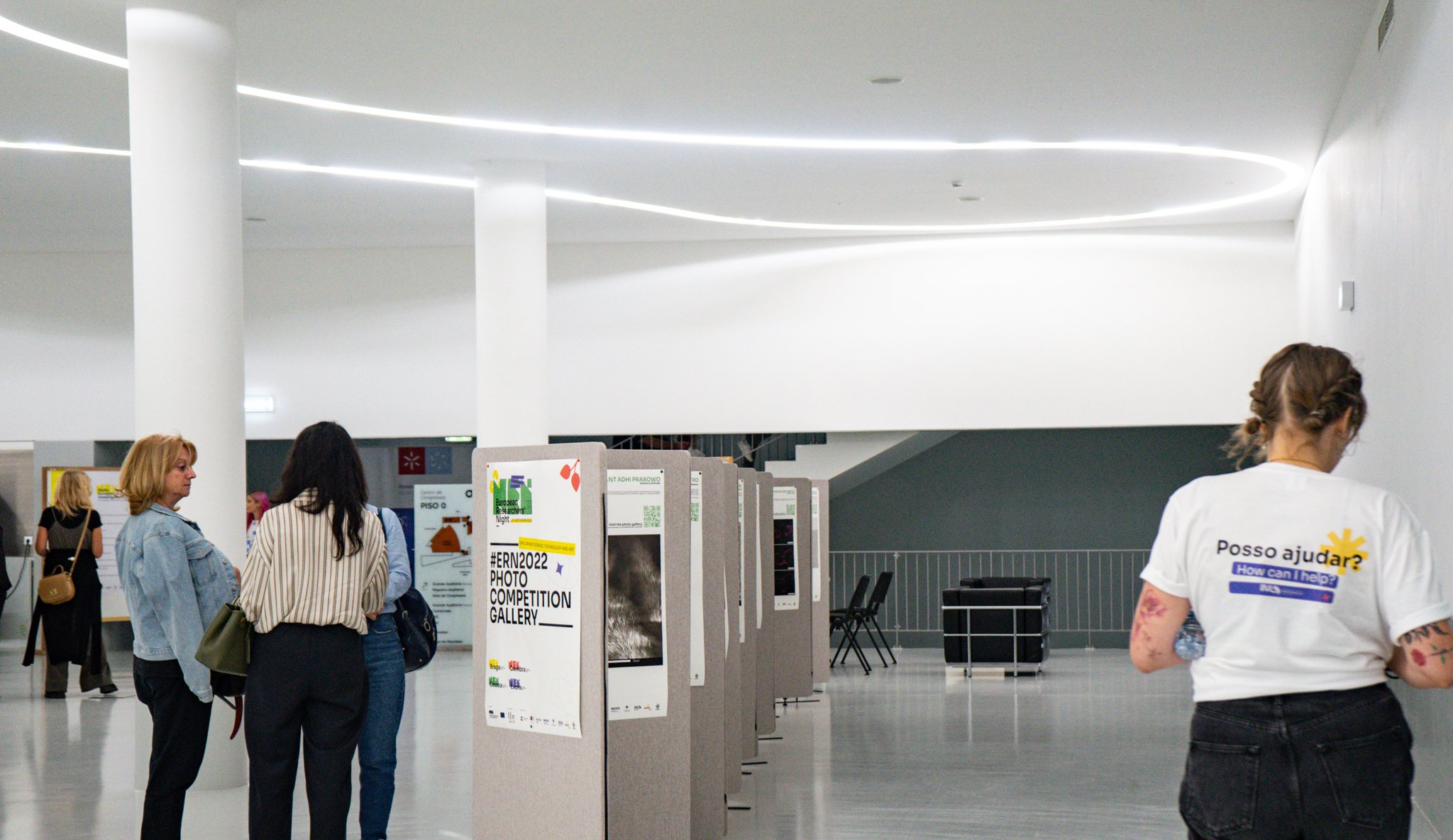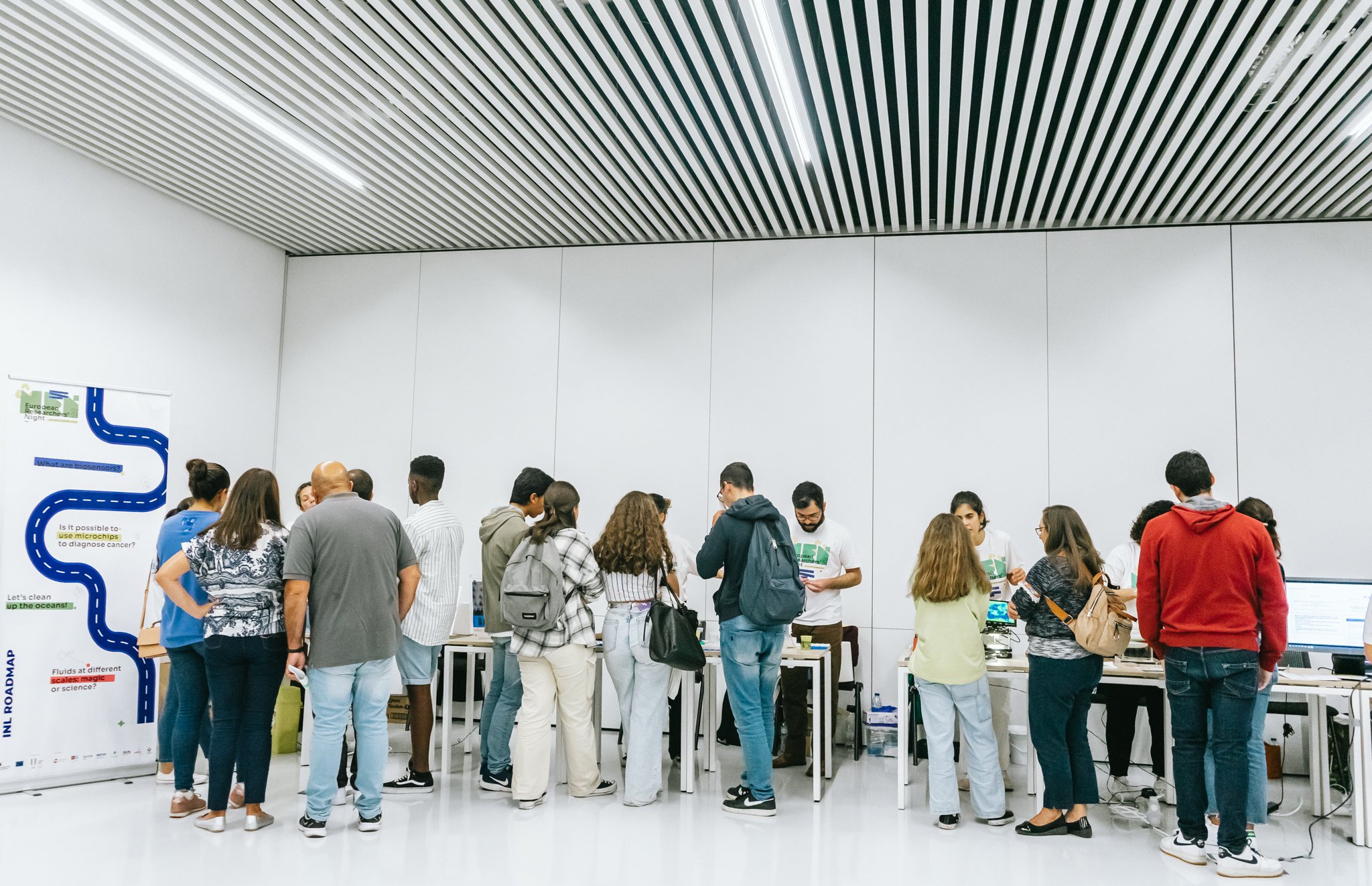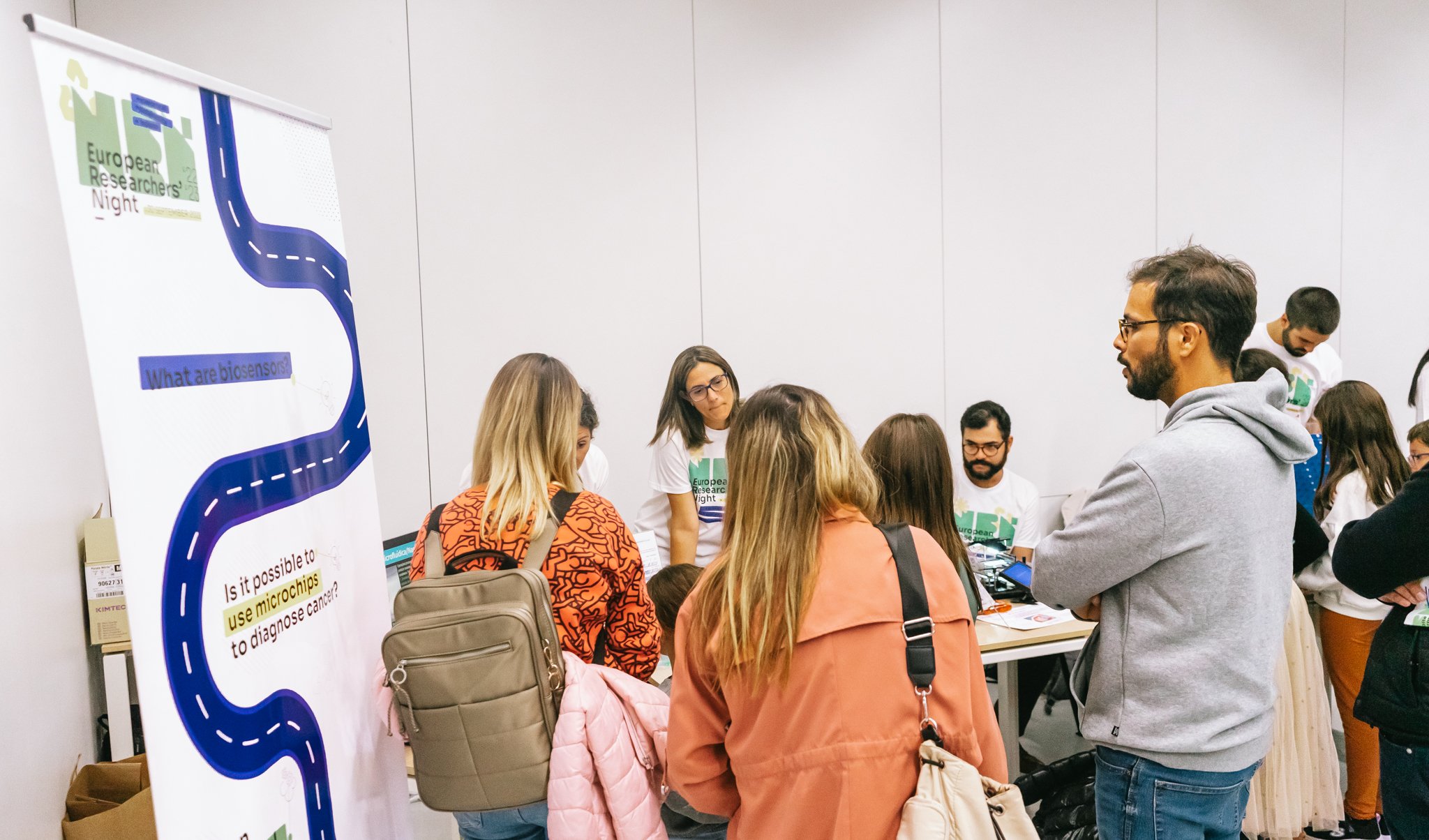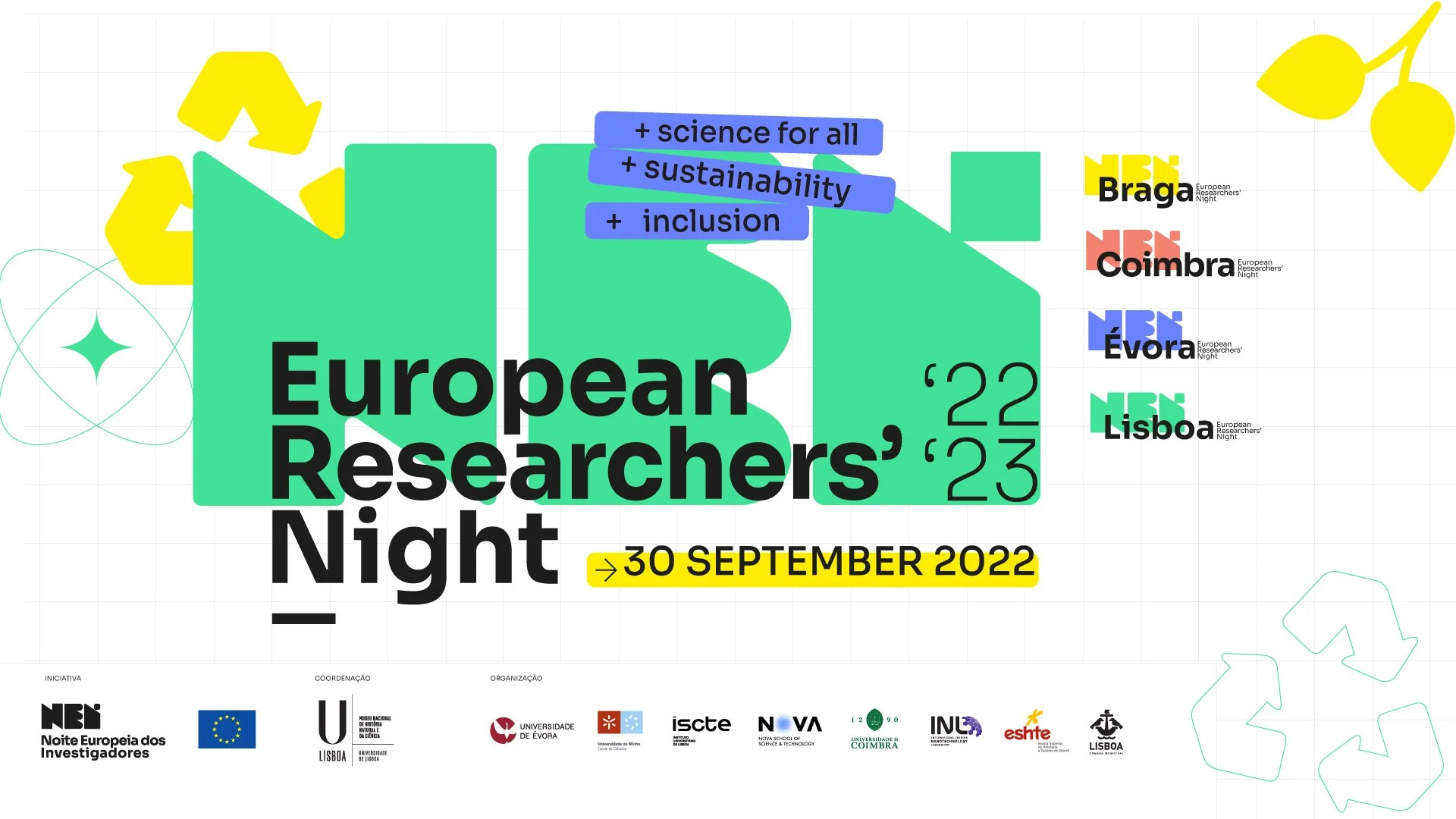The Minister of Agriculture, Maria do Céu Antunes, together with Secretary of State for Fisheries, Teresa Coelho, within the scope of ‘Governo +Próximo’ with the aim to connect the scientific research performed here to the current and future challenges in the field of agriculture and fisheries.
This visit aims to give visibility to entities that stand out in their contribution to the country’s economic growth in emerging areas of development, as well as, through the contribution of companies and centres of research for the growth of the blue economy.
The Minister underlined that “this is a cutting edge laboratory and that the technologies developed at INL – International Iberian Nanotechnology Laboratory are truly unique and disruptive and can be applied to the agriculture and fisheries areas. Nanotechnology has enormous potential to provide innovative improvements to reduce costs, increase efficiency and reduce our impact on the environment, as a necessity impacting our ability to feed our inhabitants.”
This initiative was organized within a decentralized Ministers’ Council that will happen tomorrow – May 4th, in Braga. The Minister and the Secretary of State together with Altino Bessa – Councilor of Braga City Council, Nuno Canada – President of INIAV, Rogério Ferreira – Director General of DGADR, and President AG PEPAContinente, and José Matias – Deputy Regional Director of DRAP Norte had the opportunity to contact with INL researchers from scientific areas and learn more about our projects and unique technologies.
World Water Day | 22nd March, 2023
“Searching for nanoplastics in the sea” was taken by Patricia Taladriz-Blanco using a scanning electron microscope. It shows the different salts present in the seawater, collected from the North Sea, and possible nanoplastics attached to them.
Today is World Water Day, and we would like to encourage you to think about how we use water and its importance to our Planet.
Water affects everyone, so we need everyone to take action.
INL researchers from the Water Quality research group are working on a European project to enhance urban water quality.
As climate change aggravates, severe weather events such as drought, storms and heat waves are becoming more frequent. These changes may lead to increased rainfall in many areas that aren’t equipped for high-density rainfall. Consequently, the wastewater systems are unfit and inefficient, causing potential harmful pollutants and contaminants to infiltrate the surrounding environment.
The project D4RUNOFF is a consortium which involves 13 organisations from Denmark, Spain, Portugal, France and Italy. This project aims to create a novel framework for preventing and managing pollution from this runoff in urban areas.
D4RUNOFF scientists are developing new detection methods and sensors, designing nature-based solutions combined with advanced water infrastructures, and producing an artificial intelligence-powered decision support tool for making informed decisions and improving water quality for citizens and the environment.
On this World Water Day, we would also like to share a few ideas prepared by the United Nations, so you can make your list of personal commitments to solving the water and sanitation crisis. Remember, we can all do something, even if it seems small. Be the change you want to see in the World.
-
Save water: Take shorter showers and don’t let the tap run when brushing my teeth, doing dishes and preparing food.
-
Eat local: Buy local, seasonal food and look for products made with less water.
-
Be curious: Find out where my water comes from and how it is shared, and visit a treatment plant to see how my waste is managed.
-
Protect nature: Plant a tree or create a rain garden – use natural solutions to reduce the risk of flooding and store water.
-
Flush safely: Fix leaking water and waste pipes, empty full septic tanks and report sludge dumping.
-
Build pressure: Write to my elected representatives about budgets for improving water at home and abroad.
-
Stop polluting: Don’t put food waste, oils, medicines and chemicals down my toilet or drains.
-
Clean up: Take part in clean-ups of my local rivers, lakes, wetlands or beaches.
INL highlights the impact of research on our daily lives at the European Researchers’ Night 2022
The last Friday of September 2022 marked the return of the European Researchers’ Night — the annual celebration of innovative research taking place simultaneously in more than 30 countries and 300 cities throughout Europe.
The diverse programme included games, hands-on activities, a photo booth, and the ERN2022 Photo Exhibition. We learned about biosensors, explored the world of microchips, showcased how we are fighting water pollution, illustrated how fluids work at different scales and shared the passion and the special work MISSION NERD is developing by spreading scientific knowledge to the community.
These were just a few of the possible applications that International Iberian Nanotechnology Laboratory (INL), and ECUM – University of Minho many other partners introduced to more than 1300 visitors 2022 European Researchers’ Night, at Altice Fórum Braga.
The audience defied all researchers with relevant questions and expressed genuine wonder as they saw “magic” happening before their eyes.
This year, ‘Science for Everyone – Sustainability and Inclusion’ was the motto that framed an event committed to raise awareness about the role of science in achieving sustainability and inclusion goals among school students and different audiences, while identifying key societal concerns about climate change and sustainable growth and linking them to science-oriented solutions and proposals.
INL highlights the impact of research on our daily lives at the European Researchers’ Night 2022
The last Friday of September 2022 marked the return of the European Researchers’ Night — the annual celebration of innovative research taking place simultaneously in more than 30 countries and 300 cities throughout Europe.
The diverse programme included games, hands-on activities, a photo booth, and the ERN2022 Photo Exhibition. We learned about biosensors, explored the world of microchips, showcased how we are fighting water pollution, illustrated how fluids work at different scales and shared the passion and the special work MISSION NERD is developing by spreading scientific knowledge to the community.
These were just a few of the possible applications that International Iberian Nanotechnology Laboratory (INL), and ECUM – University of Minho many other partners introduced to more than 1300 visitors 2022 European Researchers’ Night, at Altice Fórum Braga.
The audience defied all researchers with relevant questions and expressed genuine wonder as they saw “magic” happening before their eyes.
This year, ‘Science for Everyone – Sustainability and Inclusion’ was the motto that framed an event committed to raise awareness about the role of science in achieving sustainability and inclusion goals among school students and different audiences, while identifying key societal concerns about climate change and sustainable growth and linking them to science-oriented solutions and proposals.
European Researchers’ Night returns next week to Braga
The European Researchers’ Night 2022 (ERN 2022) will be back in Portugal, next week, with the theme “Science for All (SCIEVER) – Inclusion and Sustainability”, within a national consortium coordinated by the University of Lisbon, through the National Museum of Natural History and Science (MUHNAC), which also integrates the INL – International Iberian Nanotechnology Laboratory, and the School of Sciences of the University of Minho.
The initiative will take place on September 30th, between 4 pm and midnight, with a national online program and local activities in Braga, Coimbra, Lisbon and Évora.
The theme of the European Researchers’ Night 2022 – ‘SCIEVER’ – will contribute simultaneously to two main objectives: (i) improving the understanding of the importance of scientific careers development and science investments; (ii) increasing researchers’ understanding of the role of society as a whole for sustainable science policies development.
The goal of our consortium is to directly respond to Responsible Research and Innovation (RRI) goals of the EU framework program by raising public awareness, also among school communities, about the relevance of science to assure resources preservation, decarbonization and inclusion and by bridging the gap between scientists and society, giving researchers the opportunity to perceive the main concerns of citizens and how those see and understand their work. Schools and their students will be involved in activities during the whole project, in order to ensure the impact of such communities.
The European project consortium includes as partners the National Museum of Natural History and Science of the University of Lisbon, the Nova School of Sciences and Technology of the Universidade Nova de Lisboa, the Iscte – Instituto Universitário de Lisboa, the Municipality of Lisbon, the Estoril School of Hospitality and Tourism, the INL – International Iberian Nanotechnology Laboratory, the School of Sciences of the University of Minho, the University of Évora, and the University of Coimbra.
Join us, at Altice Fórum Braga, next week! It will be fun!
Next Page » -->The European Researchers’ Night 2022 (ERN 2022) will be back in Portugal, next week, with the theme “Science for All (SCIEVER) – Inclusion and Sustainability”, within a national consortium coordinated by the University of Lisbon, through the National Museum of Natural History and Science (MUHNAC), which also integrates the INL – International Iberian Nanotechnology Laboratory, and the School of Sciences of the University of Minho.
The initiative will take place on September 30th, between 4 pm and midnight, with a national online program and local activities in Braga, Coimbra, Lisbon and Évora.
The theme of the European Researchers’ Night 2022 – ‘SCIEVER’ – will contribute simultaneously to two main objectives: (i) improving the understanding of the importance of scientific careers development and science investments; (ii) increasing researchers’ understanding of the role of society as a whole for sustainable science policies development.
The goal of our consortium is to directly respond to Responsible Research and Innovation (RRI) goals of the EU framework program by raising public awareness, also among school communities, about the relevance of science to assure resources preservation, decarbonization and inclusion and by bridging the gap between scientists and society, giving researchers the opportunity to perceive the main concerns of citizens and how those see and understand their work. Schools and their students will be involved in activities during the whole project, in order to ensure the impact of such communities.
The European project consortium includes as partners the National Museum of Natural History and Science of the University of Lisbon, the Nova School of Sciences and Technology of the Universidade Nova de Lisboa, the Iscte – Instituto Universitário de Lisboa, the Municipality of Lisbon, the Estoril School of Hospitality and Tourism, the INL – International Iberian Nanotechnology Laboratory, the School of Sciences of the University of Minho, the University of Évora, and the University of Coimbra.
Join us, at Altice Fórum Braga, next week! It will be fun!

